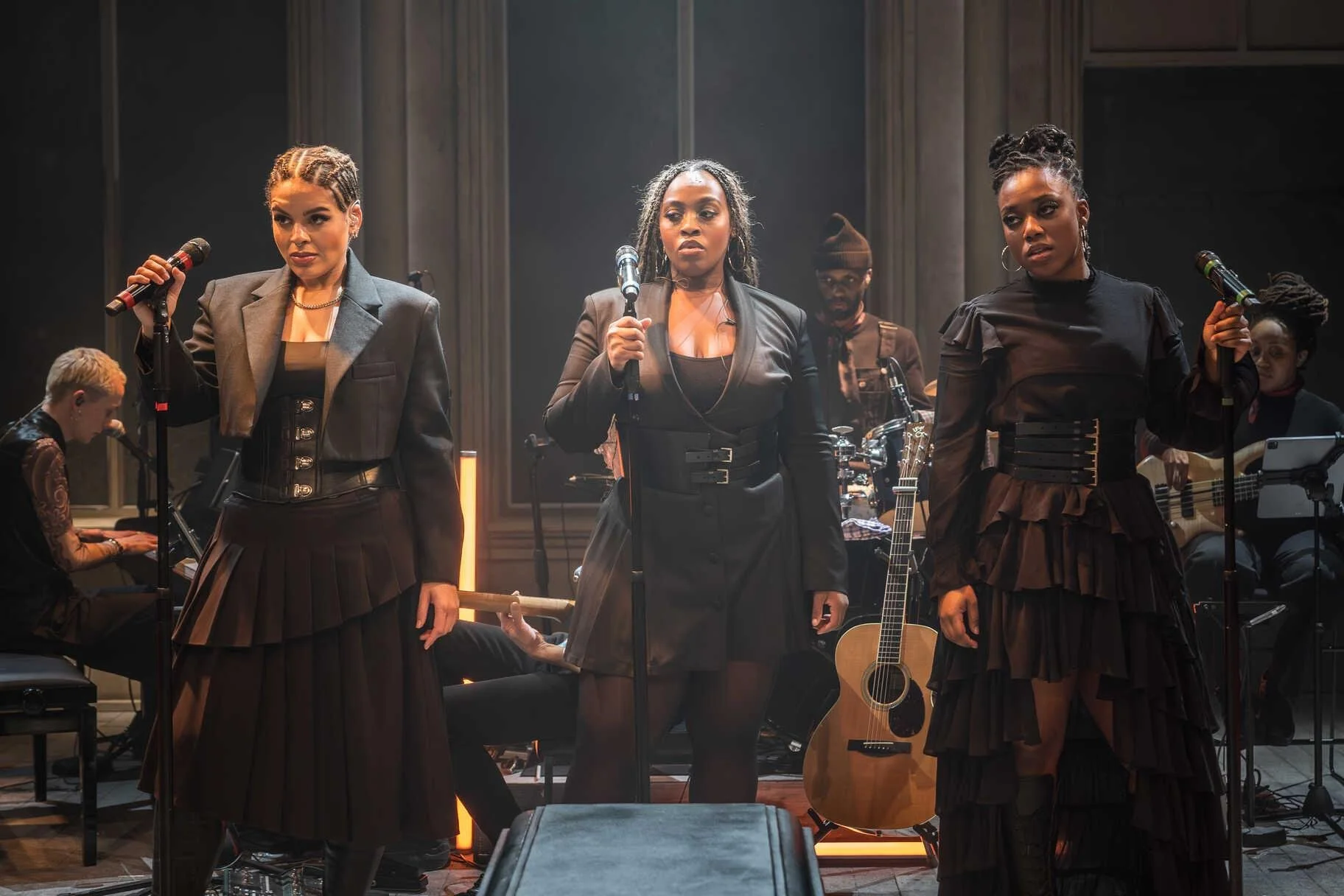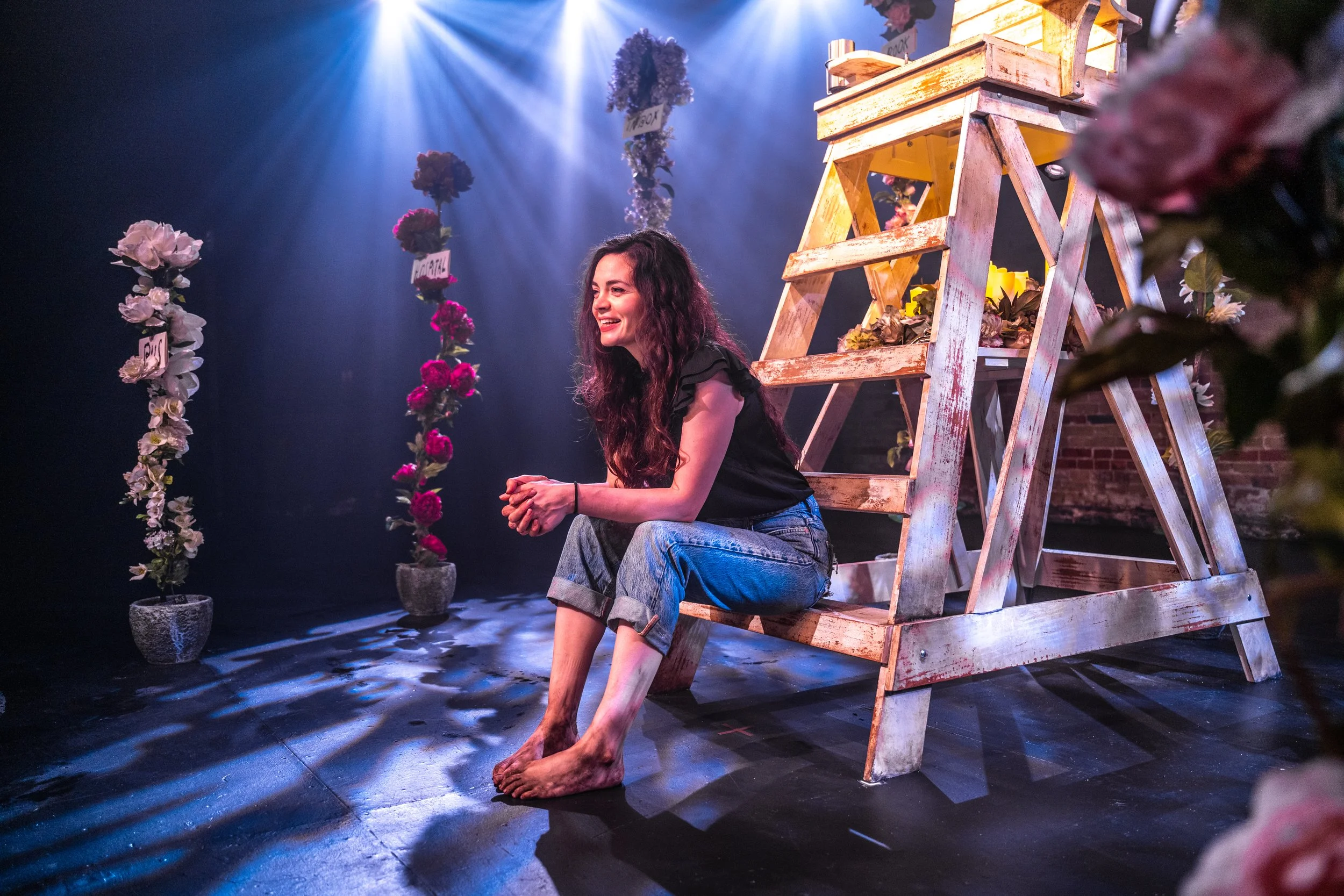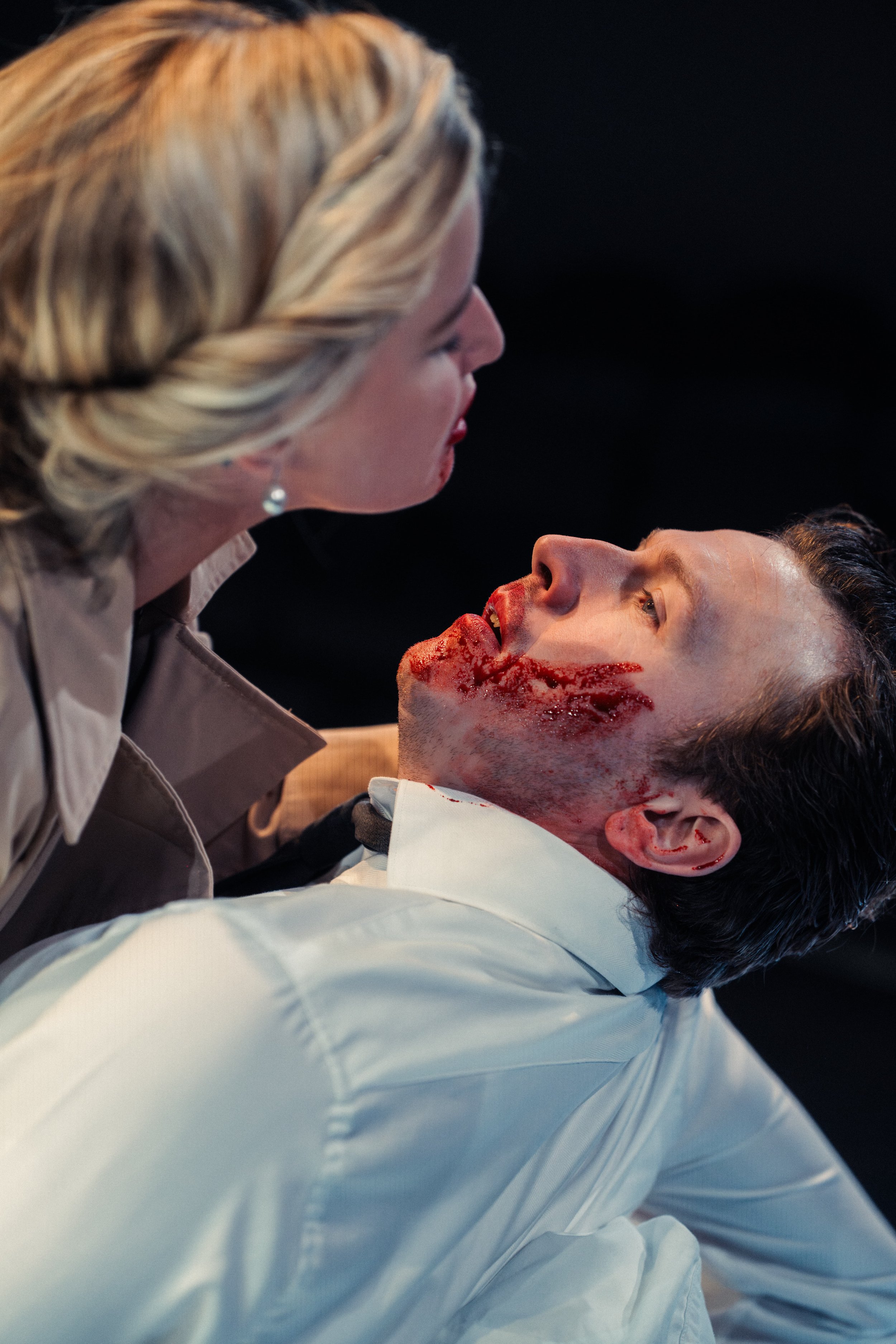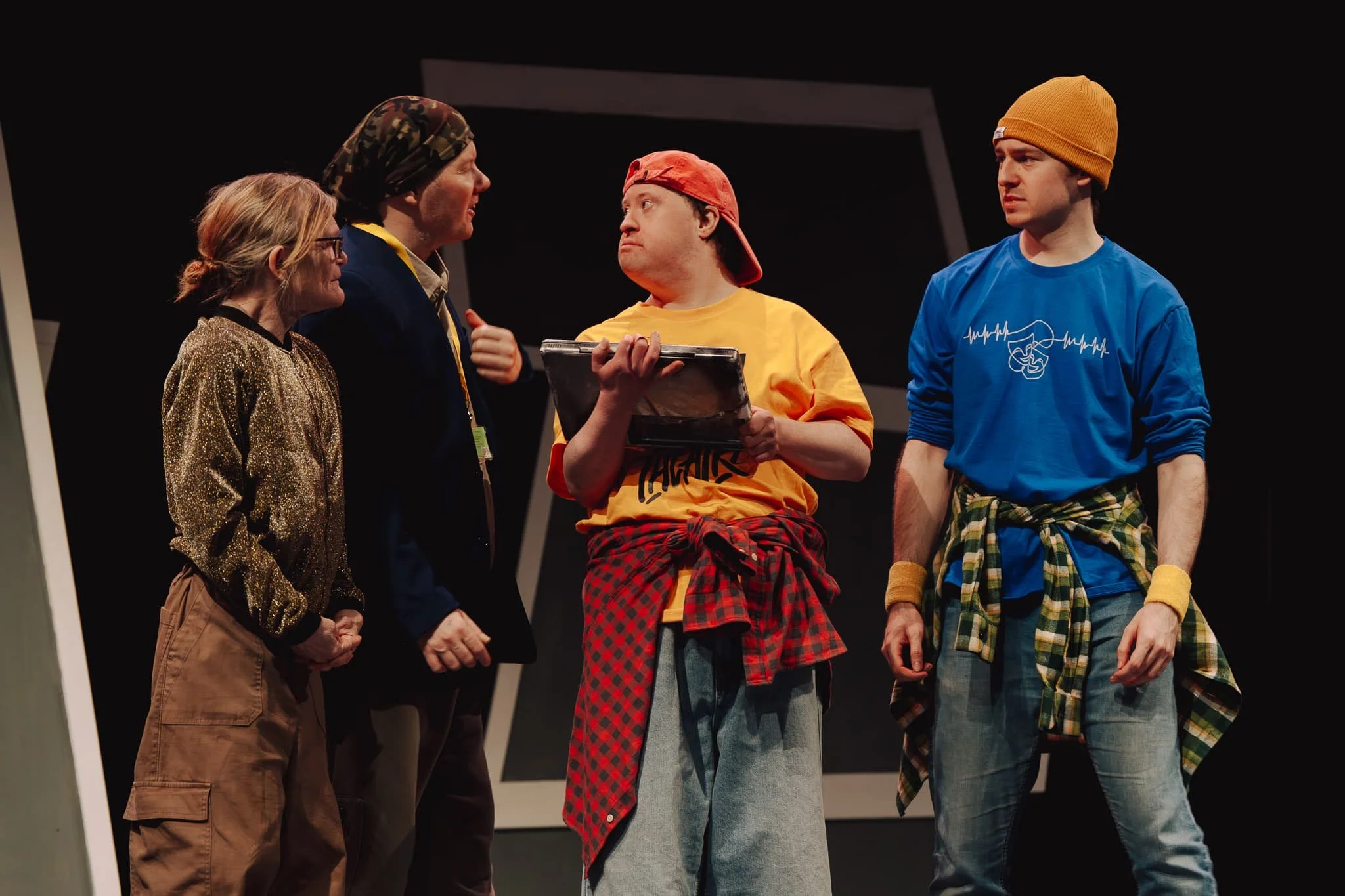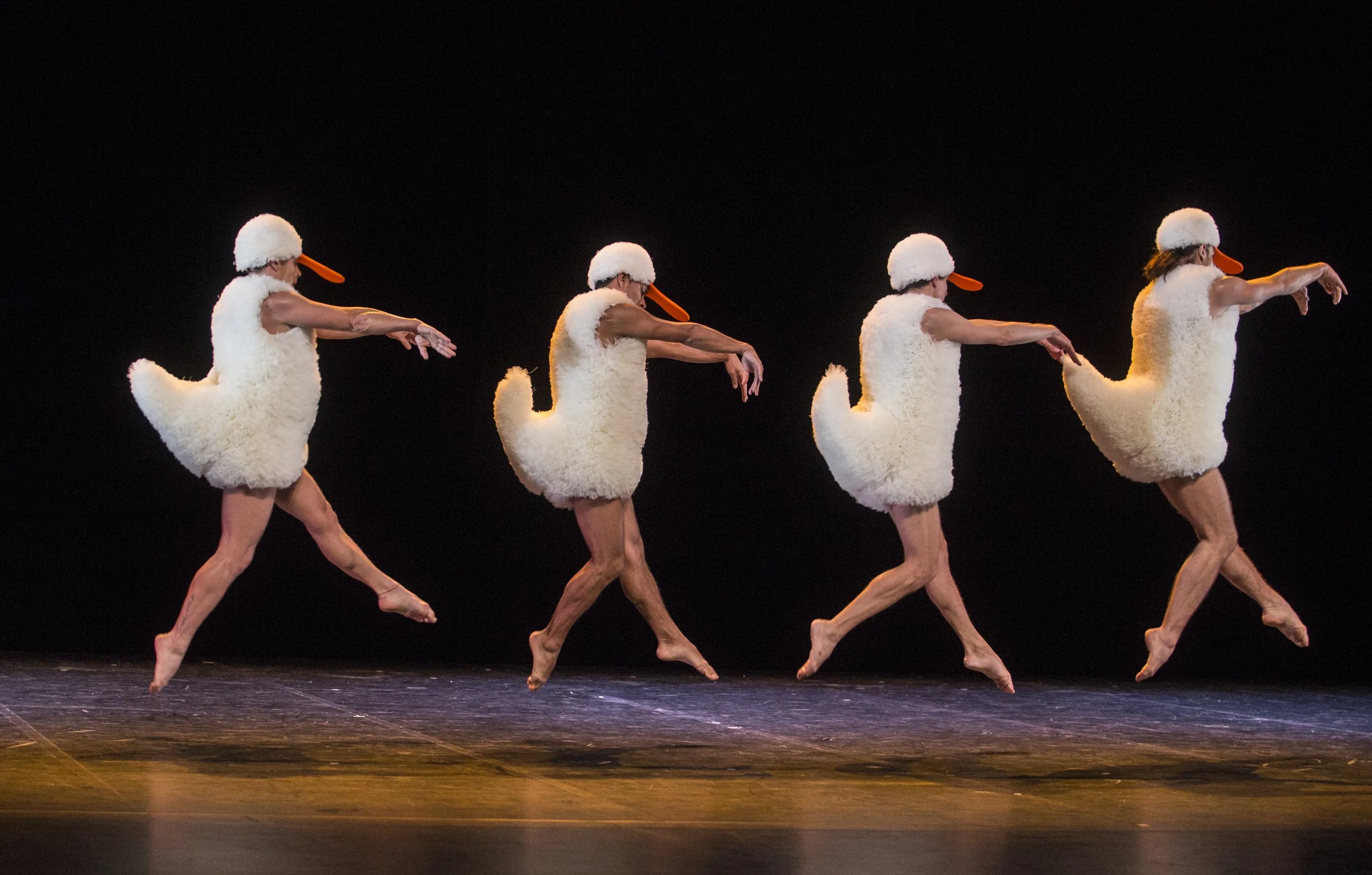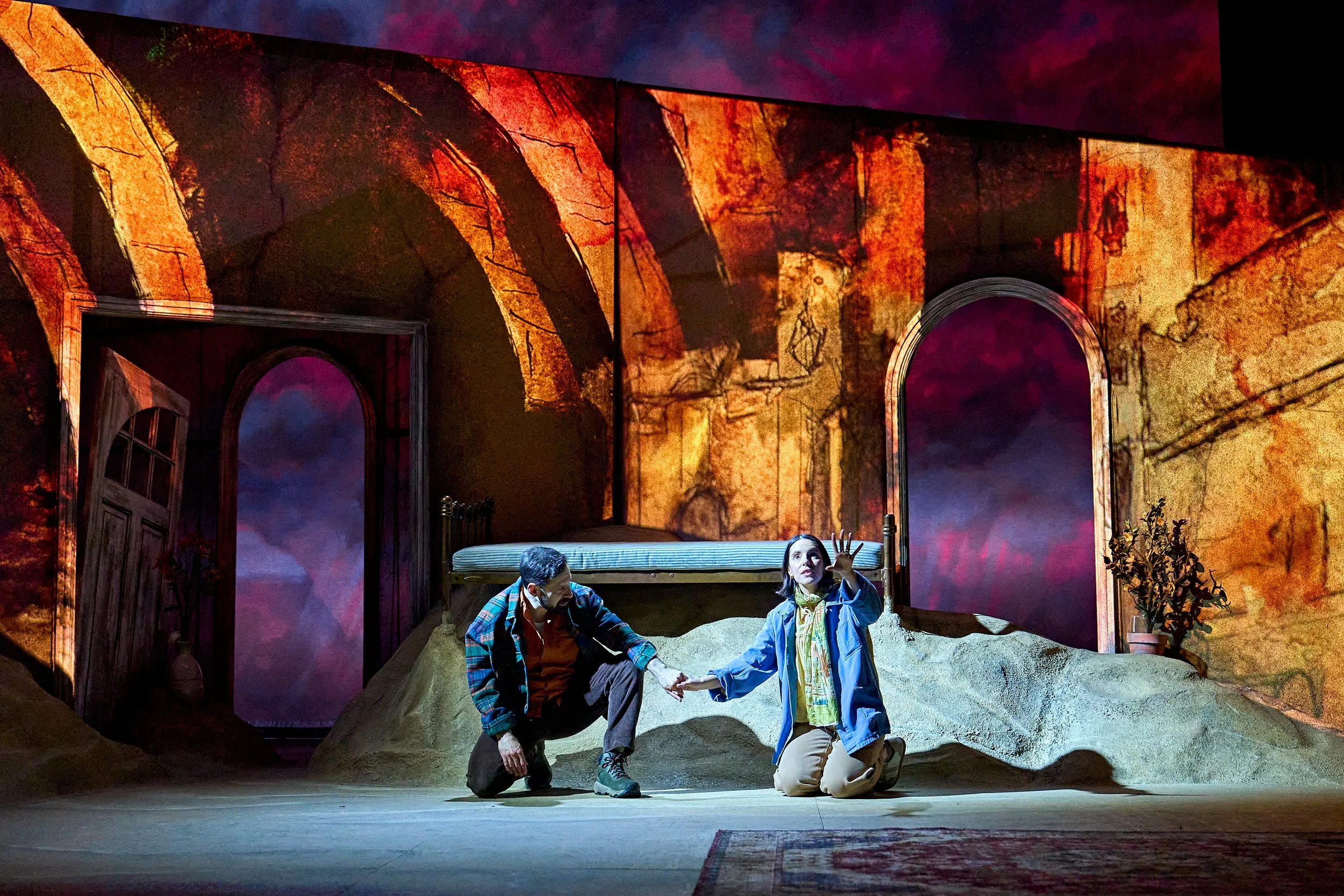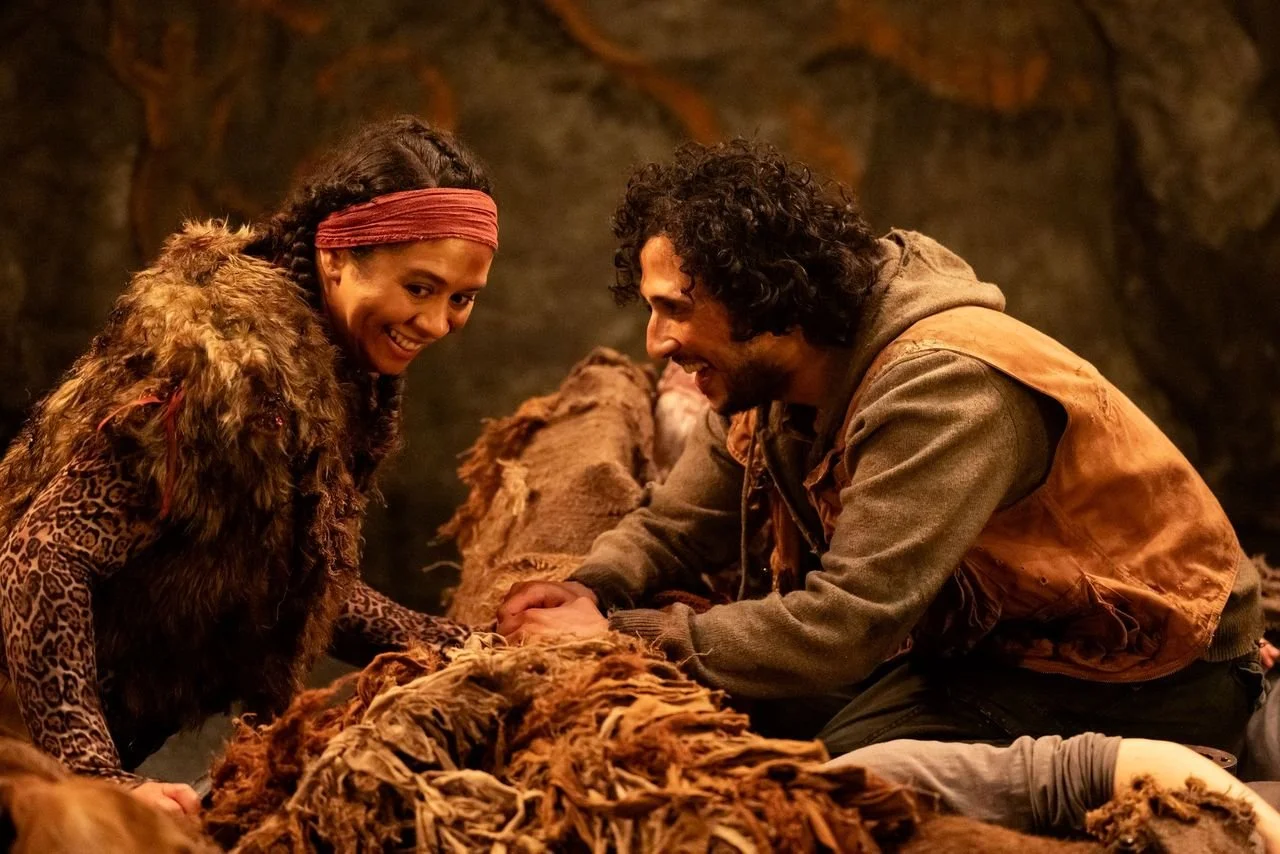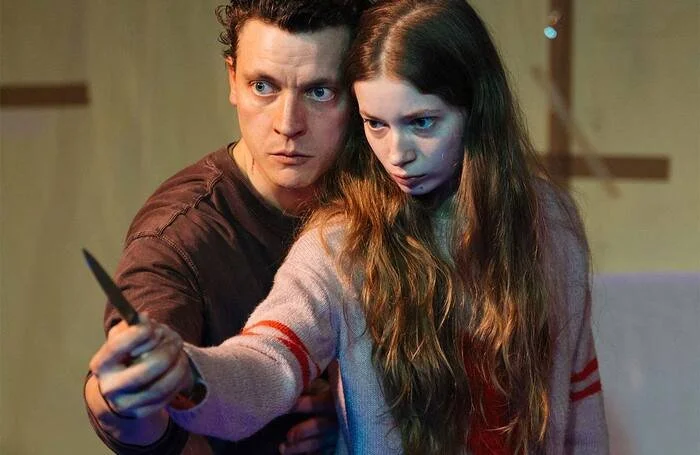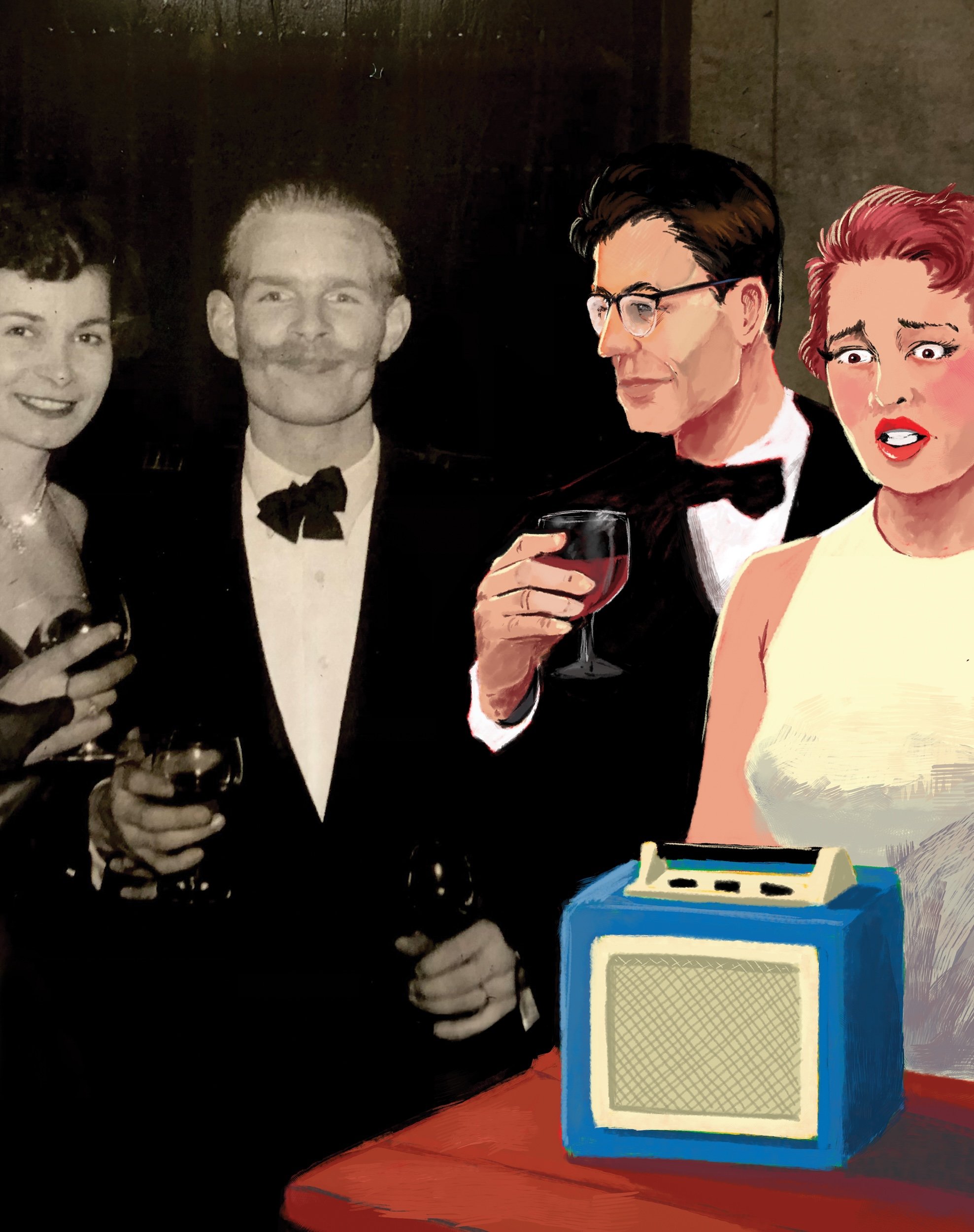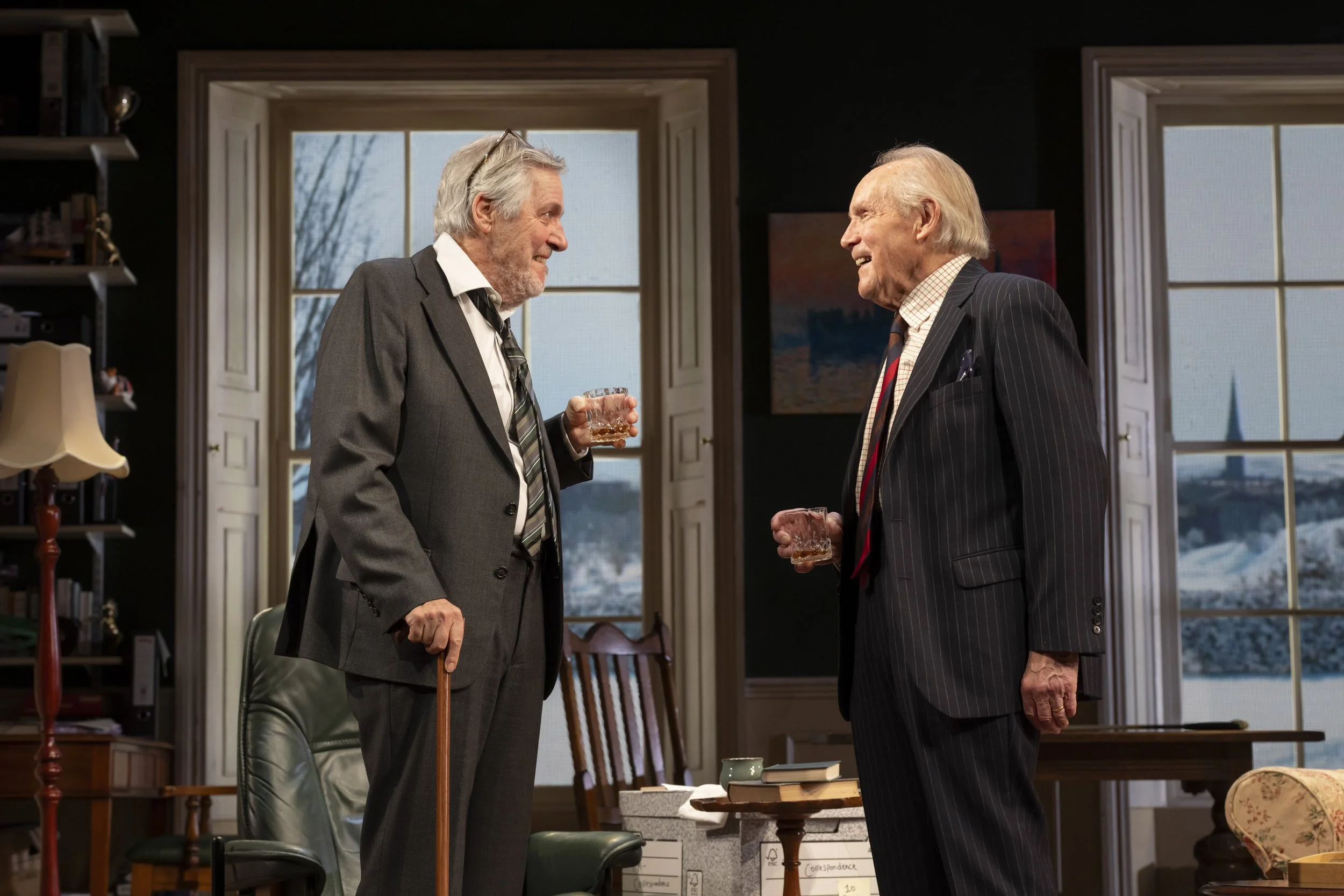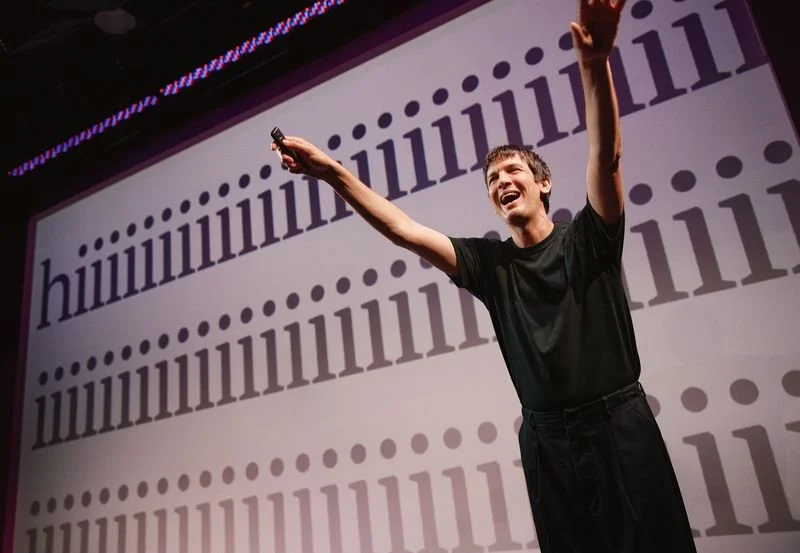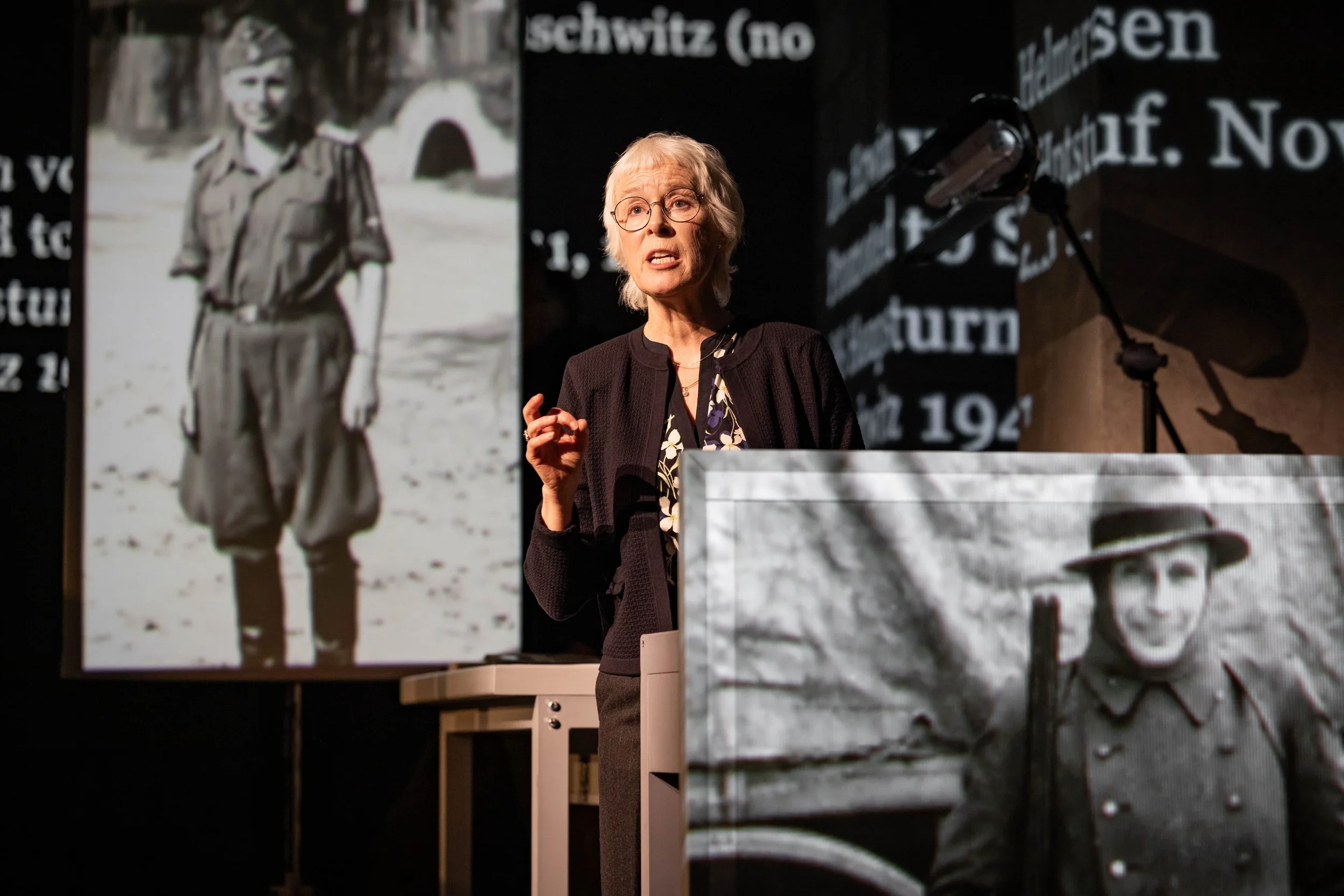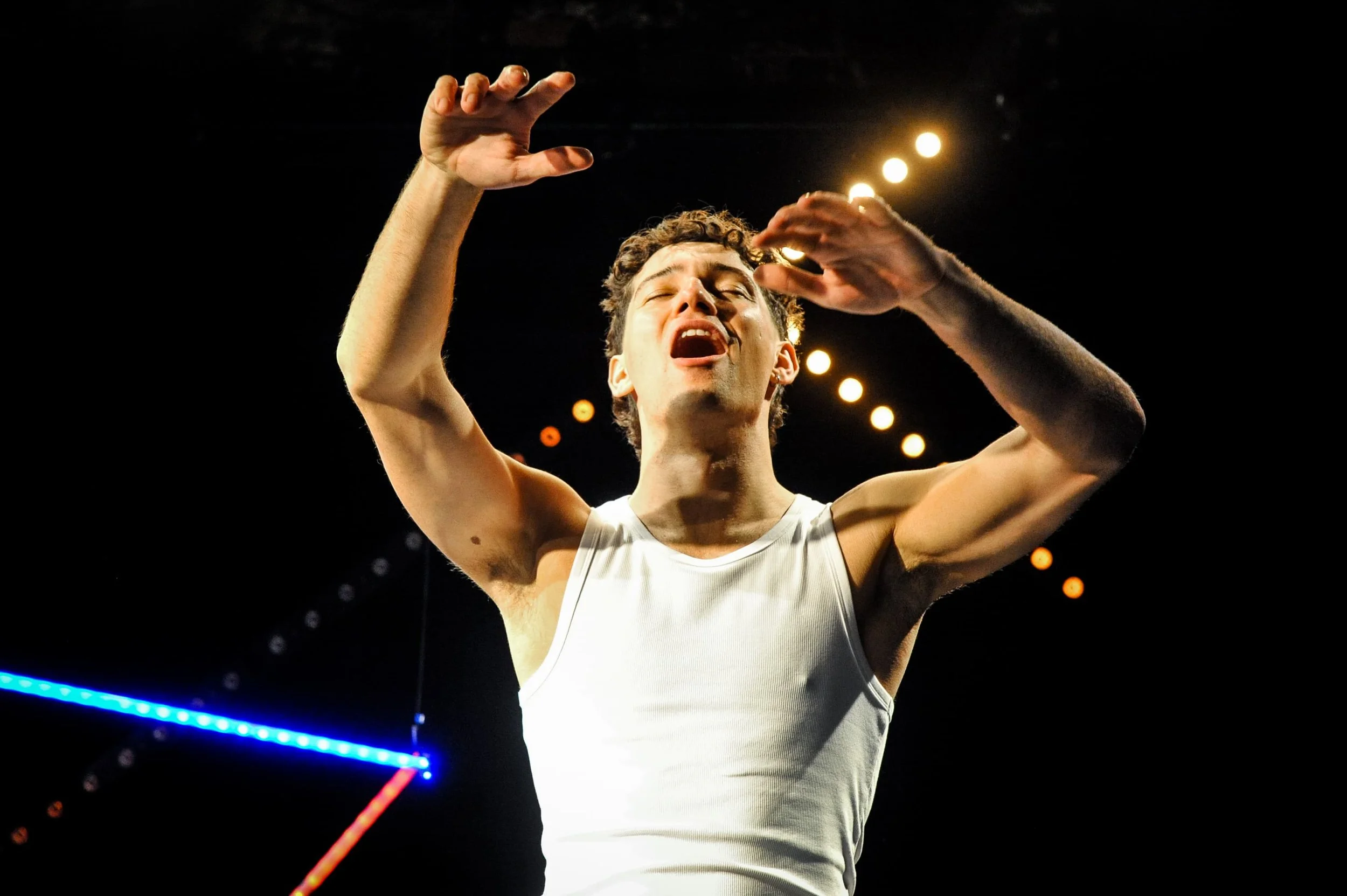Sunny Afternoon, UK Tour Review (2025)
Production images by Manuel Harlan
Written by Wendy for Theatre & Tonic
Disclaimer: Gifted tickets in exchange for an honest review
In the 1960s, aside from The Beatles and The Rolling Stones, there was another band with tremendous influence: The Kinks - the central subjects of the musical Sunny Afternoon. With book written by Joe Penhall and directed by Edward Hall, this jukebox musical first opened in the West End in 2014, featuring music entirely drawn from the works of The Kinks, with music and lyrics by Ray Davies. Now, the show has returned to stages across the UK, bringing audiences around the country back into the dazzling world of The Kinks.
The stage (Miriam Buether) is framed by three walls studded with speakers of various sizes, with only a single studio window left exposed. In front of that window sits a drum kit at center stage, flanked by rows of guitars, basses, and several standing microphones. With Rick Fisher’s shifting lighting design, the space transforms, sometimes resembling a recording studio, and at others evoking the atmosphere of a live broadcast set. When the cast launched into Sunny Afternoon, golden beams of light cascaded down as red, white, and blue confetti filled the air, spilling over the audience. For a moment, I felt transported into the era of The Kinks’ former glory.
The Kinks were made up of four young men from working-class Muswell Hill, each with a distinct personality, and the four actors not only reflect but even heighten those individual traits. Danny Horn’s Ray Davies carries a sense of depth, smart yet stubborn, introverted, and always lost in his own thoughts. Oliver Hoare’s Dave Davies, by contrast, feels like the polar opposite of his older brother: a bit like a spoiled child, yet more innocent, and irresistibly magnetic with his wild, unrestrained energy on stage. The relationship between the two brothers is also one of the most compelling aspects of the show. Harry Curley portrays Peter Quaife as gentle, awkward, but endearingly so. And Zakarie Stokes’s Mick Avory appears easygoing and dependable on the surface, while harboring a rebellious streak underneath.
However, even though the members of The Kinks are portrayed with clear individual identities, the musical focuses almost exclusively on these four personalities, despite the presence of many other significant figures. The most noticeable gap lies in the female characters, who largely serve to enhance the atmosphere rather than stand as fully realized individuals. Even Rasa (Lisa Wright), Ray’s partner and one of the more prominent women in the show, is depicted mainly as gentle and worried. Historically, the Davies brothers’ father often withdrew into his own sorrows, dissatisfied with life and emotionally distant from his children. Their mother, meanwhile, worked tirelessly to support the family. Although she encouraged her sons’ ambitions, their six older sisters still took on some of the nurturing role. None of these nuances come through in the musical, and the agents - who could have added further depth - are instead used mostly for comic relief and liveliness.
The music of The Kinks brings an incredible amount of vitality to this production. Ray Davies’s songs always carry a strong sense of storytelling, infused with his unique sharpness, humor, and a touch of melancholy and nostalgia. Jukebox musicals often face a particular challenge: because the songs weren’t originally written for the story, they can sometimes feel disconnected from the plot or fail to fully capture a character’s inner world. This musical isn’t entirely exempt from that issue, but the lyrics themselves are so thoughtful and layered that they still manage to pull the audience into the emotion almost instantly. Even so, I can’t help wondering whether playing with music might actually be a more fitting medium for telling the story of The Kinks. Whenever the characters perform as a band, their authenticity suddenly feels amplified - their cohesiveness makes every number deeply compelling. Through the sheer energy the cast channels onstage, I can completely understand why so many people fell in love with The Kinks. Among all the songs featured in the musical, my personal favorites are “Waterloo Sunset,” “Too Much on My Mind,” and “A Rock ’n’ Roll Fantasy.”
Although the current Sunny Afternoon carries a strong 1960s atmosphere, its plot feels more like a vehicle for the music - something designed to create opportunities for the songs to be performed. In reality, however, using music to express the story and the characters’ personalities is what leads a musical toward greater artistic maturity. In the second act, there are a few scenes that portray the emotional exchanges between characters with much more subtlety, and in those moments I immediately felt connected to them. This is exactly the direction in which the show would benefit from focusing more of its energy. Moreover, for the Davies brothers - the core of the band, their identities were shaped heavily by the influence of their parents and six sisters. These elements of their background deserve deeper exploration in the piece. As a work that aims to tell the band’s story, it should do more than simply recreate their music and should make the audience feel as though they are truly encountering these people. And the show absolutely has the potential to do that, because even in its current form, there were several moments that genuinely moved me.
Sunny Afternoon embarks on a UK tour until May 2026
★ ★ ★




